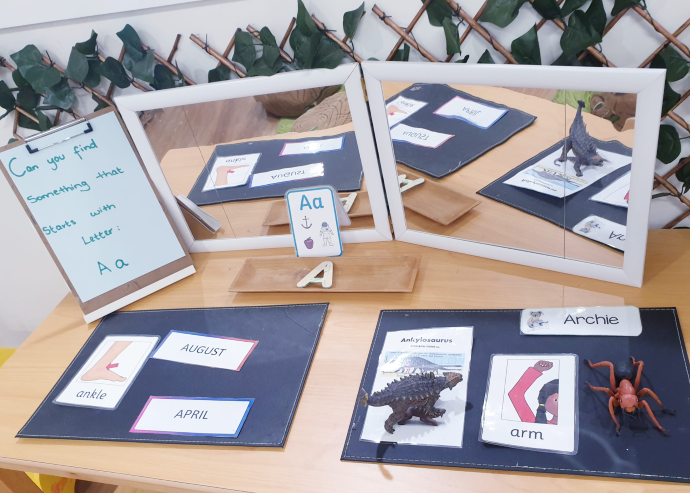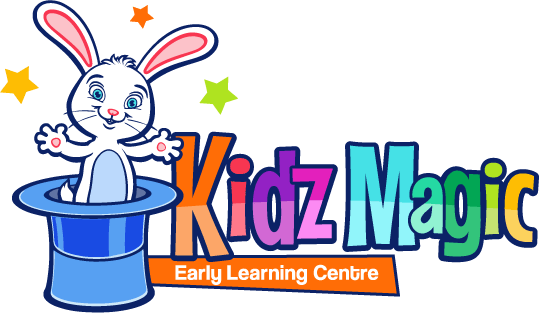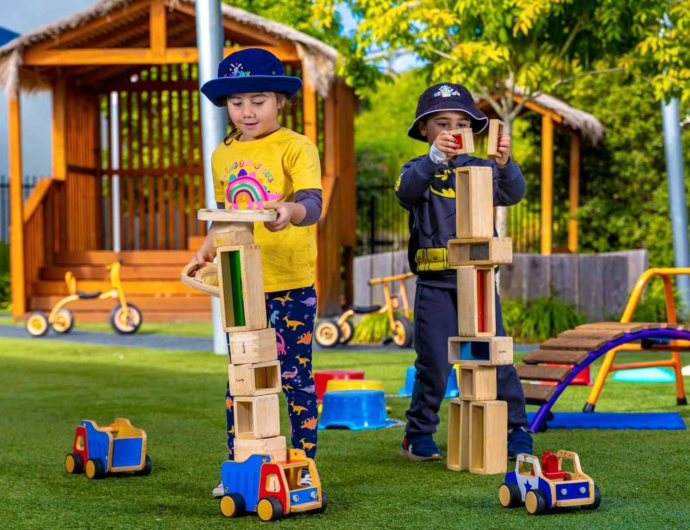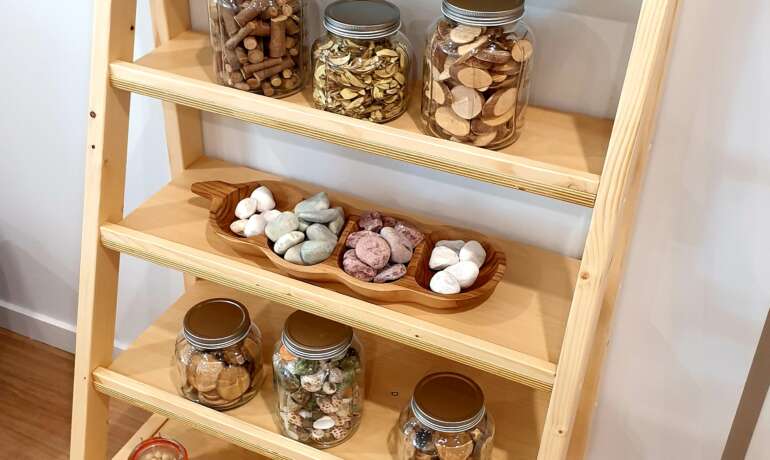Choosing between daycare and staying at home is one of the biggest decisions many families face in the early childhood years.
Both options offer benefits, but the key factor for every child’s development is the quality of care they receive.
This guide explores how each option impacts your child’s social, emotional, and cognitive growth, helping you decide what best suits your family, lifestyle, and location.
Daycare and Childcare: The Social and Educational Edge
High-quality early childhood education and childcare services provide children with stimulating environments that offer unique advantages for growth, especially as they approach preschool age. Within these spaces, qualified educators extend children’s interests, encouraging exploration, confidence, and independence through play-based learning.
For many parents, formal long day care or family day care settings offer valuable opportunities for social connection and school preparation. These structured child care experiences help kids adapt to routines, build communication skills, and form friendships that strengthen emotional wellbeing and future learning outcomes.
Social & Emotional Gains in Childcare
Children in early education environments often experience consistent routines and small groups that support healthy relationships and resilience.
- Early socialisation: Through daily interaction with peers, children learn to share, negotiate, and resolve conflicts, essential for developing empathy and social comprehension which form the foundations for positive social behaviour.
- Building resilience: Trusted educators help children manage emotions and adjust to new experiences, strengthening confidence and independence.
- Belonging: Quality care settings foster inclusion and help children feel valued within a wider community, building a strong sense of belonging.

Cognitive & Educational Benefits
Play-based approaches form the core of most early childhood education programs, including those at Kidz Magic.
- Foundational Concepts: Educators introduce early literacy and numeracy through activities including storytelling, puzzles, and creative group experiences that invite curiosity and experimentation. High-quality childcare services also expose children to a wide range of learning experiences that support language development, critical thinking, and problem-solving.
- Language development: Studies show high-quality settings enrich a child’s vocabulary due to consistent, focused language input from trained educators.
- Curiosity and creativity: Access to a broad range of materials and experiences helps children develop problem-solving skills and confidence in their ability to learn.
High-quality long day care centres also prepare school age children for a smoother transition into formal schooling. Predictable routines, collaboration, and social interactions provide an important foundation for success in later years of education.
Stay-at-Home Care: The Attachment and Pacing Advantage
Home-based care provides young children with emotional security and a familiar place to grow. Within the home, parents can follow each child’s rhythm of rest, play, and discovery, supporting healthy development and wellbeing. Everyday routines—reading, cooking, or outdoor play—help kids build independence and confidence at their own pace. This consistent environment strengthens connection, balance, and a strong sense of safety. For many families across Australia, home-based care remains an important choice that nurtures calm, comfort, and positive outcomes.
Psychological and Emotional Security
Children thrive where they feel safe, valued, and understood. Whether at home or in early education, the following conditions form the base for emotional and social growth:
- Secure attachment: Responsive relationships build trust and psychological safety, supporting wellbeing and confidence.
- Lower stress: Calm, predictable routines help infants and toddlers regulate emotions and feel secure as they explore.
- Individualised pacing: Everyday experiences such as reading, gardening, or cooking encourage curiosity and strengthen learning through real-life moments.
Family day care delivered in an educator’s home can blend both worlds, offering smaller group care in a familiar environment.

The Verdict: Prioritise High-Quality Care
Research shows developmental outcomes depend on the quality of care children receive during early childhood.
High-quality care in the early childhood stage – whether in a family day care, long day care, or home environment – provides children with consistent relationships, psychological safety, and development opportunities. When choosing between options, families should consider:
- The caregiver’s training, experience, and approach to early childhood education.
- Staff-to-child ratios, daily routines, and communication with families.
- The overall atmosphere – whether children appear happy, safe, and engaged.
Quality care extends to health and wellbeing. Nutritious meals, outdoor play, and supportive environments promote both physical and emotional health. Families should ensure they choose a service that values open communication and collaboration between parents and educators.
Finding Your Balance
Many families find a combination of both child care and home settings best meets their child’s needs. Early educational environments offer valuable experiences, while days at home support rest and family connection.
- Part-time arrangements: Can give children the best of both worlds—exposure to social interaction while maintaining strong attachment at home.
- Exploring local options: Visiting childcare centres allows parents to see how children explore, play, and build relationships in small groups.
- Understanding support: The Child Care Subsidy makes quality childcare services more affordable for Australian families. Many are eligible for support depending on income, hours of care, and work patterns. Up-to-date information is available on the Australian Government’s website or speaking directly with your chosen service. Find out your Child Care Subsidy Estimate here.
Every child is unique. The best choice depends on your values, area, and circumstances. What matters most is finding a place where your child feels cared for, supported, and inspired to grow.
At Kidz Magic, we understand that parents want the best start for their children. Our educators deliver nurturing, play-based programs built around each child’s strengths and interests. We value family partnerships and open communication, helping every child feel secure and confident as they grow.
Families across Australia choose our centres for their trusted reputation, welcoming community, and focus on wellbeing and learning outcomes. Each location is purposefully designed to support discovery, curiosity, and belonging. Our operating hours cater to working parents, and our team is always available to share updated information about enrolments, visits, and programs.
If you’re considering an early learning environment for your child, visit your local Kidz Magic centre to experience our approach to early childhood education.
Book a tour or contact us today to hear more about how our childcare services can support your family’s journey.





